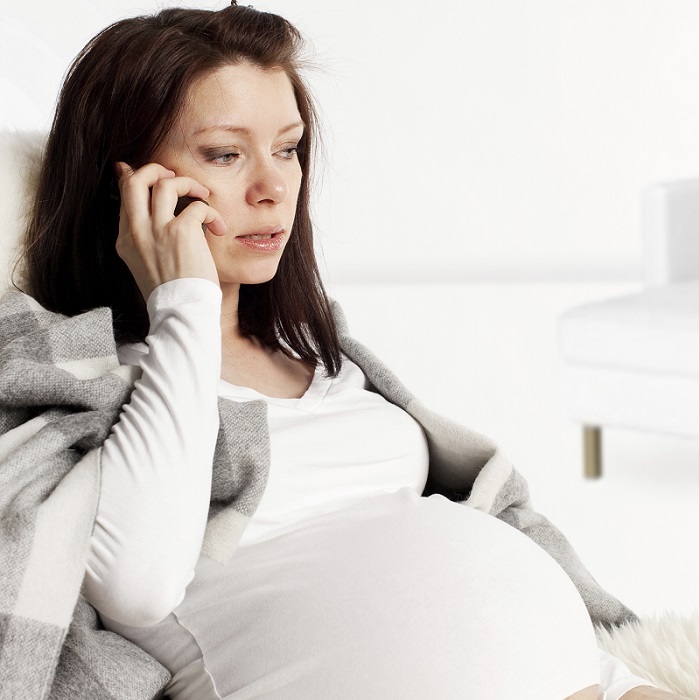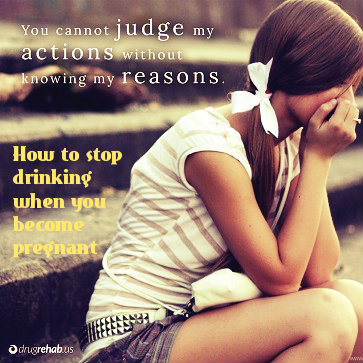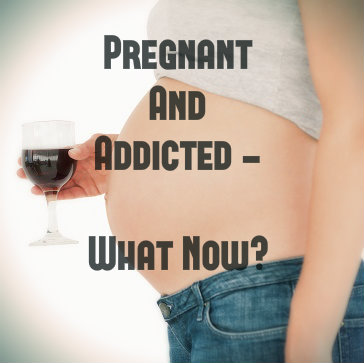18 Dec 2014
The Fight Against Stigma For Pregnant Addicts
Babies born to addicted mothers can face a very difficult start in life. When a pregnant woman is addicted to drugs and continues to use, her baby will come into this world with drugs in his or her system. A newborn who is exposed to drugs such as opiates or narcotics while in the womb will be born with a variety of problems know as neonatal abstinence syndrome.
Drugs like heroin, cocaine or oxycodone pass through the placenta from mother to baby. During pregnancy, the growing baby develops into an addict. Upon birth, the baby is immediately craving drugs, and doctors will have to give the baby drugs that are the same or very similar to the ones taken by the mother to try to ease inevitable withdrawal symptoms. Drug-addicted babies are typically inconsolable. Symptoms of neonatal abstinence syndrome can last from several weeks to several months.
In a perfect world, women who are addicted to drugs would be able to quit using before ever getting pregnant. But it’s rarely that easy to discontinue using drugs. Even when an addict knows she is pregnant and may be harming her child, the compulsion to do drugs is still there.
Difficulties Of Being Pregnant And Addicted
 It’s a growing problem, and there aren’t easy solutions. Programs aimed at helping pregnant women overcome their drug problems are often discontinued or reduced because of funding cuts. Even when programs are available to help pregnant addicts, the women are often afraid to reach out for help.
It’s a growing problem, and there aren’t easy solutions. Programs aimed at helping pregnant women overcome their drug problems are often discontinued or reduced because of funding cuts. Even when programs are available to help pregnant addicts, the women are often afraid to reach out for help.
There is a lot of stigma attached to addiction in pregnancy. Non-addicts are quick to assume that addiction is a choice, and that an addict could stop using if she really wanted to. In some states, using drugs while pregnant may even be considered a crime. In Tennessee, for example, drug use while pregnant is classified as an assault.
When a pregnant addict is arrested instead of offered help, it gives a message to other pregnant addicts that it may be dangerous to try to get help. Many try to detox on their own, which can be extremely dangerous and even life-threatening. Fear of legal consequences, such as losing custody of their other children, stops many women from reaching out for help from medical professionals. Another fear is that the newborn baby will be taken away at birth. So a large number of pregnant addicts continue to suffer in silence.
De-Stigmatizing Addiction In Pregnancy
There are few families that haven’t been touched by addiction in some way. Yet most pregnant addicts are unsure whom it would be safe to talk to, if anyone. Many of them suffer through their entire pregnancies scared and alone. They may continue to abuse drugs because it is the only life they know, or they may try to quit drugs without help, a goal that is rarely successful.
Addiction is frequently misunderstood, and often people see it as a moral failing rather than an illness. This judgmental attitude is intensified when an unborn child may be affected.
If stigma could be removed from addiction in pregnancy, both mothers and babies would benefit. If pregnant addicts were free to seek help and know they wouldn’t be judged or condemned, they could approach motherhood with strength and courage rather than fear and shame.
When pregnant addicts avoid getting help, it is really a form of denial. Addicts and their families may try to pretend that if they ignore the problem of addiction, it will go away. Pregnant addicts learn to lie to their doctors and hide any evidence that they are actively abusing drugs.
Stigma prevents addicts from obtaining good prenatal care and results in babies who are born addicted. These babies may also be born with other medical problems. Many of these problems would be prevented if the mothers were free to get help and didn’t have to live in fear of asking for it.
Few understand the hold addiction has on people and how hard it can be to overcome the compulsion to turn to mind-altering drugs. Addiction is a disease, and women who suffer from it deserve to have options for recovery without fear of stigma or judgment. So do their unborn children.
Why Do Women Continue To Drink During Pregnancy? – Understand More About Why Woman Use While Pregnant
18 Jul 2014
How To Stop Drinking When You Become Pregnant
Every mother-to-be wants the best for her future child, but when you struggle with drinking that means making a big sacrifice. If you drink a lot and have wondered if you have a drinking problem, and suddenly find out you’re pregnant, it’s like a big and important wake-up call. Now is your chance to get sober and do what is best for you and your baby.
Have I Already Hurt My Baby With Drinking?
 Many women who get pregnant without having planned for it worry that they have already caused harm by drinking during their early stages of pregnancy. While it is best to not be drinking at all, the most important thing is to stop drinking as soon as you find out. Not all experts agree on just how much alcohol can cause harm to a fetus, but the first few weeks are a time of rapid development. That being said, many women do go on to give birth to perfectly healthy babies.
Many women who get pregnant without having planned for it worry that they have already caused harm by drinking during their early stages of pregnancy. While it is best to not be drinking at all, the most important thing is to stop drinking as soon as you find out. Not all experts agree on just how much alcohol can cause harm to a fetus, but the first few weeks are a time of rapid development. That being said, many women do go on to give birth to perfectly healthy babies.
The real issue is what can happen if you continue to drink throughout your pregnancy. Any amount of alcohol can impact your child and cause fetal alcohol spectrum disorders. These are preventable illnesses that produce a variety of symptoms in a child whose mother drank during pregnancy. Possible symptoms include unusual facial features, low body weight and small size, poor coordination, hyperactivity, learning disabilities, delays in developing speech and language skills, sleep difficulties, vision and hearing problems, and even organ damage.
How Do I Stop Drinking?
There is no point in feeling guilty about having already consumed alcohol while pregnant. Now is the time to cut yourself off completely, no matter how difficult that may be. Of course if you feel you can’t do it, no matter the risk to your child, turn to addiction professionals to help you get sober and monitor both your health and that of your baby.
If, on the other hand, your problem is not that severe, there are some steps you can take to make giving up alcohol a little easier. First, associate and socialize more with people who don’t drink or in situations where there will be no alcohol. Going to parties where everyone is drinking will make quitting much more difficult.
Learn how to make fantastic virgin drinks. Cocktails are huge right now and there is no reason you can’t join in on the trend. There are plenty of resources available to help you find recipes for delicious mocktails. Or, get creative and come up with your own recipes.
If drinking has been a habit that helps you relax and unwind at the end of the day, replace it with a healthier way to de-stress. Exercise is a wonderful way to relax, and also for you and your baby to stay healthy. Just be sure that you keep your doctor in the loop in case certain types of exercise should be avoided. You can also relax by engaging in a hobby, reading a good book, taking a nice long bath or by meditating.
Giving up alcohol for the health and safety of your baby may be the most important thing you ever do. It won’t be easy if you have made a habit of drinking too much or regularly, but it is doable. Just remember that if you really struggle to get on the wagon, professionals are available to help you.
Learn More – Why Do Women Continue To Drink During Pregnancy?
If You Need Help With An Addiction, Call Us Now – We Are Available For You 24/7
13 Mar 2014
Pregnant And Addicted – What Now?
Battling addiction and striving to achieve sobriety are some of the most difficult challenges a person can face. Addicts have to suffer through terrible withdrawal symptoms while detoxing, go through therapy and rehab and then face a lifelong struggle with the prospect of a relapse. Now imagine facing this demon while pregnant; it is the struggle that too many women encounter. Along with the difficulty of coming clean, they face the shame and embarrassment, the possibility of losing their children and unique health challenges. Getting sober is essential for the health of the mother and the baby.
What Are The Barriers To Treatment For Expecting Mothers?
 For many women who find themselves both addicted to drugs and unexpectedly pregnant, the idea of getting help is a daunting one. Women in this position tend to feel extreme guilt, shame and fear. A pregnant woman needing addiction treatment may avoid getting help for fear of being judged and vilified. She may also face the fear of losing her newborn after admitting to being an addict.
For many women who find themselves both addicted to drugs and unexpectedly pregnant, the idea of getting help is a daunting one. Women in this position tend to feel extreme guilt, shame and fear. A pregnant woman needing addiction treatment may avoid getting help for fear of being judged and vilified. She may also face the fear of losing her newborn after admitting to being an addict.
What addicted pregnant women need is compassionate care from doctors and other health professionals who understand the special needs of these patients. Without care, these women and their children will suffer. For instance, some women may try to take the matter into their own hands and quit cold turkey, which can actually be harmful to the baby.
The Consequences Of Addiction On The Fetus
For the unborn child, the consequences of a mother’s addiction can be serious. The baby will most likely be born with neonatal abstinence syndrome. This is a collection of symptoms caused by the drugs the mother uses. The baby is born addicted and then experiences withdrawal. Symptoms may include blotchy skin, poor feeding habits, irritability, diarrhea, high-pitched crying, seizures, insomnia, slow weight gain, fever, sweating, trembling and vomiting. Withdrawal in the baby is not the only concern; drug use can lead to complications during labor and delivery.
Pregnant Addicts On The Rise – Finding Solutions
As the number of people in the U.S. addicted to opioids (prescription painkillers and heroin) rises, the number of mothers and infants affected also rises. Statistics indicate that the number of babies born with neonatal abstinence syndrome has more than doubled in the last six years. In 2012, nearly 6 percent of pregnant women were using illegal drugs. The increases are being seen across the country and among all demographic groups. The healthcare costs are rising with the number of addicted babies.
Healthcare professionals are stepping up and looking for solutions to treating these women and their babies. With compassion and tested methods for treatment, they can help women feel comfortable asking for help with addiction. More hospitals and addiction centers are offering specialized care for pregnant women as the problem grows. Although many experts in the past have considered use of maintenance drugs, like methadone, to be bad for the unborn child, doctors now know that maintenance is often the best option. Withdrawal in the pregnant mother can be very dangerous for the baby.
Many of these new programs include not just cutting-edge treatment for addiction in the mother, but also the goal of continuing that care after the baby is born to ensure the mother has the best chance of staying sober and caring for her children. The programs also include plans for reducing complications during delivery and maximizing the odds of having a healthy baby. Many plans also help these new mothers with family planning and parenting skills, as well as long-term care for themselves and their children. With good care that is specialized for their needs, pregnant women have hope for a successful birth and healthy child.
Read More About Drinking During Pregnancy And Find Out Why Women Continue To Drink


